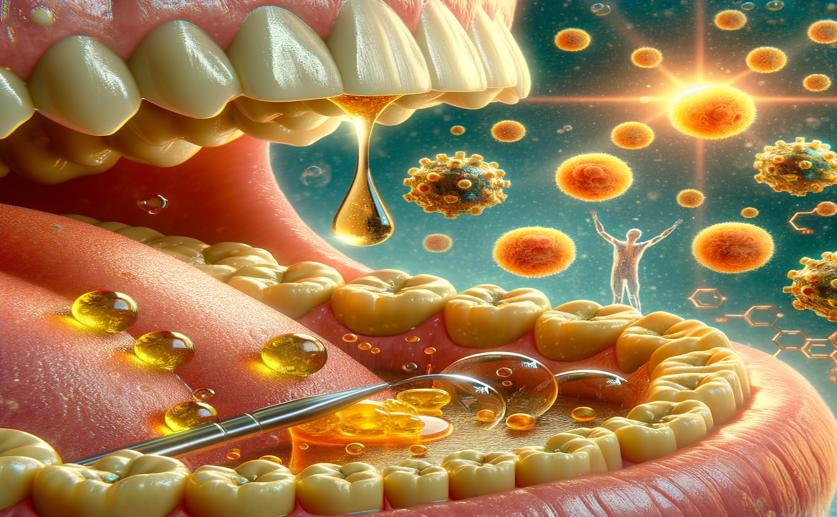
Fenugreek Oil's Impact on Healing Mouth Ulcers by Studying Cell Growth Markers
Greg Howard
14th June, 2024

Image Source: Natural Science News, 2024
Key Findings
- The study from the University of Baghdad investigated the effects of fenugreek leave oil on healing mucosal ulcers in rats
- Rats treated with fenugreek leave oil showed a significant increase in Ki-67 expression, a marker of cell proliferation, by the 3rd day
- The findings suggest that fenugreek leave oil accelerates the healing process by promoting cell growth and reducing inflammation
References
Main Study
1) Effect of fenugreek oil on healing of experimentally induced buccal mucosal ulcer by immunohistochemical evaluation of Ki-67 expression.
Published 13th June, 2024
https://doi.org/10.1007/s12013-024-01347-0
Related Studies
2) Platelet-rich therapies in the treatment of orthopaedic sport injuries.
3) The maintenance of an oral epithelial barrier.
4) Vitamin C in disease prevention and cure: an overview.



 10th June, 2024 | Jenn Hoskins
10th June, 2024 | Jenn Hoskins